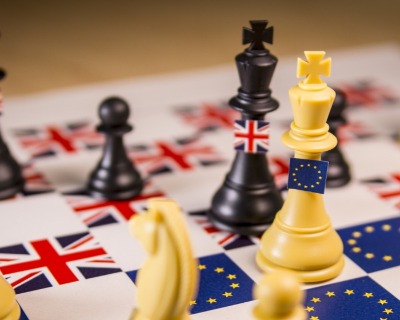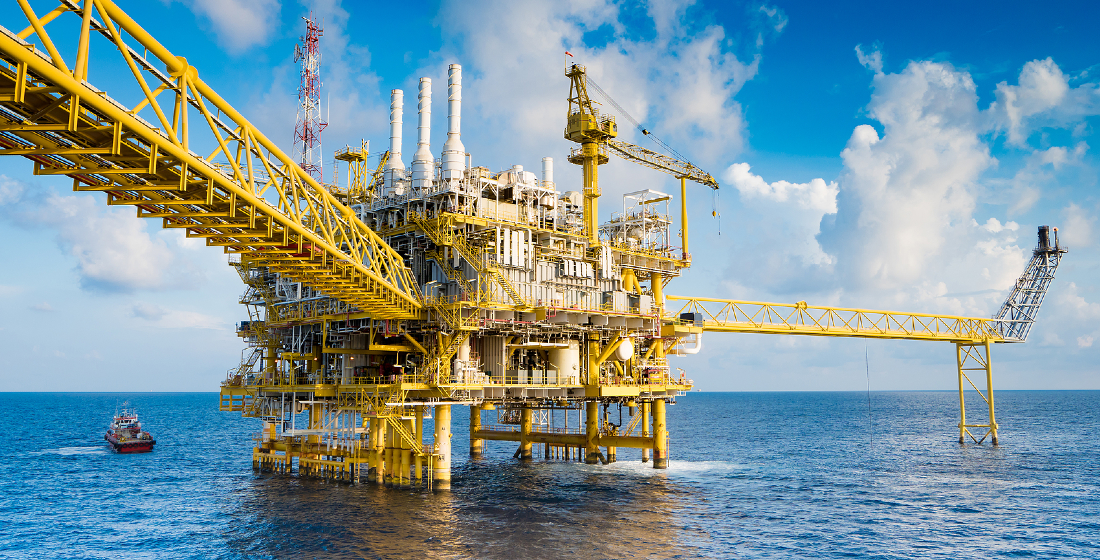Risky Business: Brexit ups the rhetoric of trade weaponization in Europe
TXF and Coriolis Technologies’ country risk index digs deep into the strategic trends in militarisation of trade. In this section Rebecca Harding, CEO of Coriolis Technologies sees weaponization of trade in Brexit rhetoric, European populism and Turkish troubles. This is the fifth in the series of seven insights.

TXF: Risky business in Europe. There's plenty of it, where should we start. Let me think. Shall we start with the UK?
Rebecca Harding (RH): Yes, we can start with the UK by all means. The UK actually has reduced its risk in every single area over the last year or so except foreign policy and so foreign policy risk has increased 100%. The reasons for that are obvious.
TXF: We are going to mention the 'B' word here [Brexit]?
RH: We are going to mention the B word and I apologize for that, but let's get that out of the way first. I think the most important thing with the UK at the moment is its ambiguous relationship with Europe and its ambiguous relationship with itself actually. What we're seeing in the data is this general tension in the news in relation to Europe in particular, uncertainty about a sense of destiny for the country. In trade terms that isn't having an impact in terms of increased imports of arms like we've been talking about [elsewhere] because we have budget constraints as well.
We've actually not increased our levels of arms or strategic trade at all over the last six months.
TXF: It's not weaponization then?
RH: It's not weaponization, but where it's appearing is in rhetoric. So there is a rhetorical weaponization that's going on around our economic relationships with Europe in particular. And we've seen an awful lot of that because of the type of language that our politicians use in relation to Europe and have been using. Now what this does is eventually it alters our relationship with the rest of the world and then it means that we have the potential for being isolated and then that has consequences militarily and in terms of foreign policy as well. That's where we're likely to see the biggest risks emerging. As we speak the EU and the UK have announced that they have come to a deal. Obviously Theresa May in the next month has to get that through parliament. And what then happens is representing huge domestic policy risks to the UK as well.
In terms of what are the global risks to trade from Brexit, they are actually fairly small. So if you at the UK these days as an influencer of world trade there are risks to the UK because we are the 10th largest exporter in the world and the sixth largest importer in the world. We don't have that type of influence that we think we have any more. So there are risks from this foreign policy, risk to our trade. There are obvious risks to trade finance as well. So we are seeing from that foreign policy there may be risks to the UK. There almost certainly won't be long term risks to global trade or even European trade.
TXF: In terms of the actual risks themselves at the moment though, apart from the rhetoric, you're saying that was actually physically not been that much impact on trade so far of the process. What about in terms of our ability to import in the future as well?
RH: So much of this in the UK is about our supply chains. What you have to remember in the UK is that all of the UK's trade is strategic. So we do a lot of aerospace trade, we do a lot of high-end communications, telecommunications, electronics trade. We do a lot of trade in in military equipment as well.
We have a very strategic base to our trade. It's actually the highest of the G 20. So if you look at the strategic trade is being arms trade plus dual use goods trade in strategic areas then it's actually nearly 30% of our economy. And from that point of view it's very highly correlated with GDP growth as well because it's so big.
If we alter our strategic relations with Europe we're altering the trade base of important supply chains in electronics and machinery and components, which also includes computer technologies, we're altering our relationship in terms of aerospace and we're altering our relationships in terms of pharmaceuticals and obviously automotives as well.
These are very important sectors for the UK. Sixty percent of our trade with Europe is in those five sectors. We're beginning to see the need to come together again to talk about what those strategic relationships are going to be. I think that's why the politicians have moved more in direction of kind of realpolitik - being practical about what the relationship should be.
TXF: And does this data to cover services as well?
RH: It does cover services. But the thing about services is that actually in the UK nobody knows what our service sector trade is. So the government came out with a report, the Office of National Statistics came out with a report which never got anywhere. Which is actually Ireland and the US and France and Germany and Spain say that they trade a lot more with us in services and we say we trade with them. In other words, Germany says it imports in financial services, for example, twice the amount that we say we import from Germany.
Now if you multiply that, and I have done in our data, across all the countries. We don't have a trade surplus in services that is anywhere near as big as as is in our government statistics at the moment. The government knows this asymmetry problem is there. If it's real. And I wouldn't dare say it was if the government is not saying it is, but if it's there, then it has very profound consequences for our GDP and how our GDP is constructed. There is something that needs to be investigated.
If I look at the other way in which Brexit has actually influenced Europe and influenced the US as well, it's actually an increase in populism across Europe. So what we have seen in Europe over the last six months and projected to move forward as well is an increase in regime type risks. And this has happened in most European countries. Austria, Belgium, Bulgaria, Croatia, Germany, France, Italy, Hungary Poland. It's having a profound effect on the nature of Europe. We've seen American influence coming in along the lines of populism. Steve Bannon's crew coming in to try to influence European elections. That is a destabilising influence in Europe and what's happening alongside that is that we're also seeing building tensions along the states in Europe that border the Baltic states.
So we've seen increased in arms trade in Finland, Sweden, Norway Denmark and we're hoping that may have peaked and that there was a one off. But that is one to watch because there are risks building there.
All of that said, Europe is a region that is stable. It's not a high risk region in the world. It's relatively stable. The most risky country within Europe - in broader Europe - is Turkey and what we're seeing with Turkey is that it is a high risk country. In terms of its growth in arms trade and in terms of its growth in dual-use goods trade Turkey has become visibly more risky over the last six months. And a lot of that is to do with it being on a fault line between Eurasia, the Middle East and North Africa and Europe. Literally and figuratively I mean this is on a fault line. But politically it's on that fault line as well and where it stands at the moment is very uncomfortable in terms of its domestic politics but also in terms of its geopolitical position. It's one of the countries also that is key in circumventing sanctions. Its relationship with Iran is very important its relationship with Russia is very important. You see a lot of commodities not elsewhere specified trade going through Turkey because it is a conduit between some of the sanctioned countries and border European trade particularly in oil.
TXF: And it's also been hit quite a lot by the rhetoric at least of weaponization of trade with China.
RH: Yes so what's happened there is that there is an increase in visible tension in the news. The relationship between [President] Trump and Turkey is difficult obviously. Over the last few months that's ameliorated slightly because they let the pastor go [and he] returned home to the US. Trump has stepped back a little bit. We've seen those risks moderate but there's still a very big tension in the news in terms of this broader relationship. Turkey will become embroiled in any kind of extension to sanctions on Iran, will become embroiled in a trade sense in the relationships between Europe, Iran and Russia as well. That's where the risks are in the trade sense.





